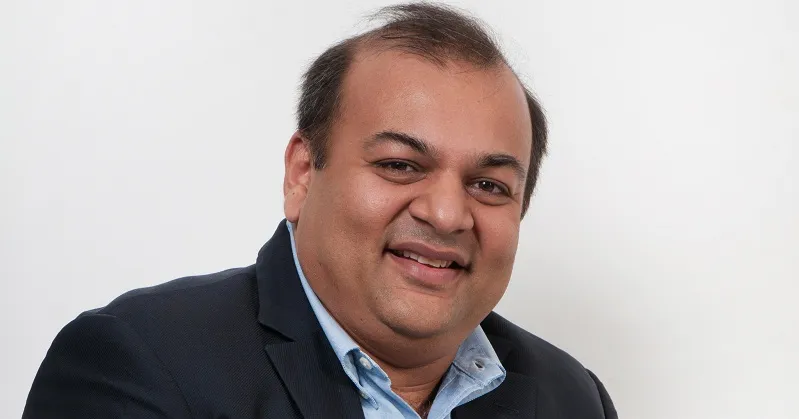Dell's lights on business takes a fresh turn with its CIO for the APJ region Hemal Shah
Startups are the flavour of the month, and so is innovation within a company. If you walk into Dell's corporate office in Bengaluru, you witness how the future has already been set in motion. The company has automation along with real-time business for customer care in one part of the building. It also has a platform that tracks all the social media comments - across the globe - about Dell. The older businesses - keeping the lights on applications - are giving way to automated applications that can minimise human intervention.
Hemal Shah, Dell’s APJ CIO, believes that the future is about predictive analysis for tracking and serving customers. He says technology today can predict whether a customer is coming in to a coffee store a mile away, and that all organisations must prepare for that kind of future.

Dell Inc, which is a $55 billion corporation, has automated platforms to track its 55,000 agents using its contact centre applications and a system that manages close to 300,000 orders a month. Dell spends close to $4.5 billion on R&D, and a major portion of that money comes to India. Hemal has set his sights on a future run by platforms and open APIs. Here are the excerpts of the interview on why Hemal believes entrepreneurship must be fostered in large corporations, and also that large corporations should work with startups outside:
1. What are your thoughts on how IT is evolving?
HS: If you look at Dell, we are an end-to-end company. We have manufacturing and distribution businesses spread across the world. We have to manage customers to make sure that the Dell brand is well respected, and we put the customer first, be it institutions or consumers. At my office, we listen to everything that the customer has to say. The world is driven by social media interactions and people are on mobile. Analytics is the centrepiece of everything for us. This is what a CIO must keep pace with. The future is all platforms and open APIs. We must accept that innovation in IT is coming from outside of an organisation. There are two things which we must manage- one is to work with the best startups outside the company, and the other is to foster innovation within the pool of employees. IT has been changing constantly with the power of networks and mobile devices. IT systems need to be ready for elasticity and remote monitoring with automation. Testing of applications can be automated too. This is why we set up the 200 people-strong SMAC centre in Bengaluru, to at least take us to that future of real-time analytics of our customer-facing services. Now these applications like IoT or mobile-based sales modules are already a major portion of our global R&D spends.
2. You have a different take on automation?
HS: Everyone looks at automation and says fewer jobs. You still need a software engineer to code automate scripts. These are the platforms businesses you talk about. You need good engineers who can build security protocols and regularly work on scaling up systems. It's just a different way of looking at IT. This is why you see all IT services businesses focus on platforms that are focused on artificial engines, with very few people writing code. But you still need engineers to build that AI engine.
3. Are you a fan of innovation coming from a small startup?
HS: That's the way innovation has always happened. Large corporations have to accept that, and that's why they acquire smaller innovative companies to help them grow to the next level of business technology. However, we had Dell India's team filing 20 patents last year. We have had hackathons where our employees have built IoT devices that can track people when a fire hits the building. There were employees who designed an automated platform, housed in Dell laptop bags, which could predict water logging in monsoon-prone areas. Of the India and regional budget for the CIO, we use 35 percent for new innovations or transformative solutions. This region is in the forefront of research for global Dell offices.
4. Do you have some innovations coming out of here?
HS: One of the many innovations was to make the Dell logo on the laptop become a sensor. By this, I mean that a service centre, upon getting a laptop for service, need just scan the logo to know what is wrong with the machine. So the future we are building is unique. Today, things like storage, switches, networks and servers are all part of a single box in the system. It is a hyper converged cloud platform. Tomorrow, if a corporation needs a service, all it has to do is just plug in a few APIs, without the need to invest in a software product. It can take pieces of a platform to do a task.
5. Every year, you have $1 million kept aside for special ideas?
HS: We have a programme where we pick a few ideas every year and make sure they do an entire business plan. They do a live pitch to the senior management here, and these ideas get seeded within Dell to improve functions within our department and within the company. We have been proactive not just in keeping our employees engaged, but in making them think like entrepreneurs. Around 16 teams get access to this money, and they go all out to make their ideas work. By the end of a year, we review their progress and integrate the tech into Dell. Some of the work has been on automating the server side internally, making the mobile the centre of customer service, and then making our databases work on predictive platforms. In the end, Michael Dell values entrepreneurial mindsets, and it is a clear road map for me to get people thinking that way.







